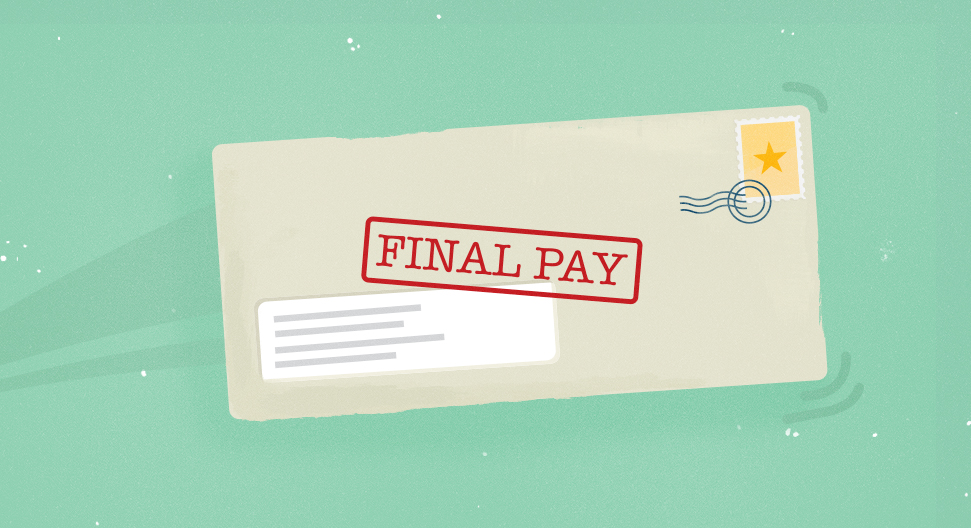Become an insider!
Get our latest payroll and small business articles sent straight to your inbox.
As much as you want to avoid turnover as a business owner, a certain amount of attrition is to be expected in any company.
When an employee leaves your company, thus ending their employment, you are required to administer a final payroll. The final pay will be your employee’s last form of compensation from your business.
Final pay includes anything an employer owes an employee when their employment ends.
It is the employer’s responsibility to ensure that the exiting employee receives their final pay and any outstanding amounts owed (i.e. vacation pay, commission, etc.) and any other payments due to the employee because the employment has ended.
Other payments could include allowances previously agreed upon by both the employee and the employer, reimbursements that have not yet been refunded, or any outstanding bonuses or commissions.
Any accumulated vacation pay that the employee earned over the course of their employment must also be paid out at this time, and you also need to include any vacation calculated on the severance pay.
In some cases, a company may choose to pay an employee for their two-week notice, but not require them to revisit the workplace due to any sensitivities or confidentiality. If you are paying an employee for their two weeks, or if you terminated them and owe them two week’s pay, you are required to pay vacation pay for these weeks as well.
Employers have a “reasonable time period”, or a set amount of time determined by state law to administer a final paycheck.
It is important to check the specific guidelines for the location of your business.
You can locate the government website for each US state here and links to Canada’s Provincial and Territorial government websites are available here.
Employees who do not receive everything they are entitled to can seek action with their corresponding state government or through a lawyer. A lawyer would only become involved if the amount owing to the employee is much greater than just their final two weeks of pay.
The result for the employer would be potential financial penalties and a whole lot of unnecessary paperwork.
Even with unfortunate or unpleasant terminations, it is important that business owners follow all of the rules surrounding final pay to avoid fines or any legal allegations.
With Wagepoint, you can submit a final payroll that includes outstanding wages, accumulated vacation pay and other owed payments; and specifically for Canadian employers, we can issue Records of Employment (ROE for any terminated employees.
Disclaimer: The advice we share on our blog is intended to be informational. It does not replace the expertise of accredited business professionals.












